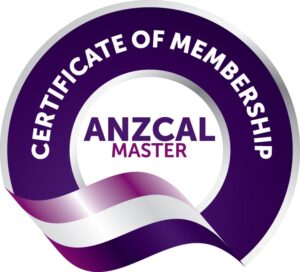
Courtesy Free Digital Media
Whenever time seems to simultaneously go fast and go slow; when events that occurred twenty years ago feel as though they happened last week, while events that happened last week seem a lifetime ago; I think this may be what time travel feels like.
“Life goes by in the blink of an eye” was a line in the movie, Collateral Beauty, that struck me as profound and reminded me of a poem written by an American Baptist Minister and Civil Rights Leader, Dr Benjamin E. Mays (1894 – 1984):
I have only just a minute,
Only 60 seconds in it.
Forced upon me,
Can’t refuse it.
Didn’t seek it,
Didn’t choose it.
But it’s up to me,
To use it.
I must suffer if I lose it,
Give account if I abuse it.
Just a tiny little minute,
But eternity is in it.
Insightful utterings, such as Mays poem or Will Smith’s line in the movie, provoke reflections about one’s own life. Even looking through old photographs in an album reinforces the impression that the years do indeed flash by in the blink of an eye. How often have you found yourself saying “Where did the time go? Where did the years go? Time flies!”?
I have noticed myself whining that “I don’t have any time! ” whenever I am caught up in my own head-spinning busyness. When I stop those thoughts to ask myself if those statements are really true, I have to acknowledge that I have an equal amount of time in my day, week, month, year as the next person i.e. 60 minutes in an hour, 24 hours in a day, 7 days in a week, 12 months in a year. No more, no less. So how do some people manage to calmly breeze through life with the same amount of time and yet the same lengthy ‘to do’ list? It really becomes a question about how we prioritize those things that we value most. Instead of “I wish I had more precious time to spend on doing things I love” or “I wish I had more precious time to spend with my children, my parents, my loved ones” we should be asking ourselves “How much time in my week am I willing to prioritize on relationships I value?”
Time is not something we can accumulate or get back, and time travel is not yet an option. Eckhard Tolle, in his book, The Power of Now, tells us that time is an illusion and we should not think of time as precious. Instead, he says what is really precious is the present moment, the ‘now’, because it is a point that exists outside of time. Dwelling too much on the past and focusing too much on the future, means that we are more likely to miss the present moment, the ‘now’.
This doesn’t mean we cannot reflect on previous experiences; nor does it mean we must forgo future planning, goal setting and achieving targets we set for ourselves. Goal setting uses what Tolle refers to as ‘clock time’ which provides a direction of where you want to go. Staying in the present moment requires you to give your fullest attention to the steps you are taking in the ‘now’ towards that goal. When we allow ourselves to become obsessively focused on the future outcome of that goal, we lose the experience of the present moment. We need to be conscious of ‘clock time’ while still remaining present in the ‘now’.
Ancient Grecians had two words for ‘time’, i.e. chronos, which is time that is measured, counted and chronicled such as in clocks, calendars, timelines and diaries; and kairos, which is time that is lived and experienced in the ‘now’, such as in the moments that make life meaningful. Kairos can be understood through this well-known biblical passage in Ecclesiastes (Ch3,V1-8) in the King James Bible:
To every thing there is a season, and a time to every purpose under the heaven: A time to be born, and a time to die; a time to plant, and a time to pluck up that which is planted; a time to kill, and a time to heal; a time to break down, and a time to build up; a time to weep, and a time to laugh; a time to mourn, and a time to dance; a time to cast away stones, and a time to gather stones together; a time to embrace, and a time to refrain from embracing; a time to get, and a time to lose; a time to keep, and a time to cast away; a time to rend, and a time to sew; a time to keep silence, and a time to speak; a time to love, and a time to hate; a time of war, and a time of peace.
Elisabeth Elliot, in her book ‘Discipline: The Great Surrender’, wrote: “When we are in the midst of great busyness, we hardly think of kairos and see chronos only as hours that are flying by faster than we can count. It is when things are quiet that we become aware of minutes that tick slowly by. Then we have opportunity, perhaps, to think of their deeper significance in the light of eternity.”
Creating quiet in the midst of busyness, can be achieved with 10-15 minutes of daily mindful breathing practice at the start of your day. The benefits of making mindfulness practice a habit or a daily discipline is beneficial for mind and body. Stress, anger and anxiety are exacerbated by our thoughts about situations and events in our lives, and impacts our health, our judgment ability and our attention skills. Research indicates that mindfulness practice leads to reduced anxiety, improved resilience to stress, and overall better general health.
The discipline of creating a quiet time of awareness for mindful breathing, reminds me of the Japanese concept of ‘ma’ which refers to the spaces in between things. Designing for ma is about creating space for quiet awareness and mindfulness practice. Creating a space in between thoughts; a space for kairos, a space to honour the present moment, an interruption, a pause in the midst of our busy lives; essentially enables us to connect with ourselves in the ‘now’ as we resolve overwhelming thoughts and feelings, allowing us to become aware of the eternity that exists within each magnificent minute. Not unlike time travel.
© Gaynor Clarke, January 2021
Gaynor is a teacher educator and mentor facilitating personal & professional leadership wellbeing outcomes for teachers.
If you are an early childhood teacher or leader looking to enhance your leadership skills, I would love to work with you. As a leadership mentor and coach, I specialize in helping early childhood educators develop their leadership potential and make a positive impact for the ākonga they serve. If you are interested in learning more about my leadership mentoring services, please visit my website or contact me directly to schedule a consultation. I would love to work with you!








Leave a Comment
You must be logged in to post a comment.